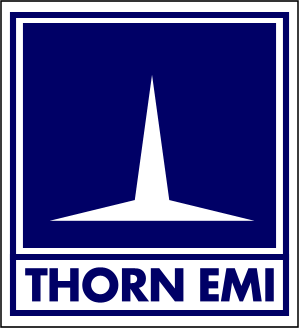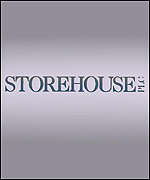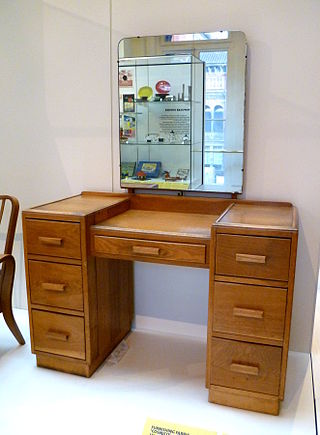
The Warehouse Group (TWG) was established by Stephen Tindall in 1982 and is the largest retail group in operation in New Zealand. It is a corporate conglomerate that consists of The Warehouse, Warehouse Stationery, Noel Leeming, 1-day, and TheMarket.

British Home Stores, commonly abbreviated to BHS and latterly legally styled BHS Ltd, was a British department store chain, primarily selling clothing and household items. In its later years, the company began to expand into furniture, electronics, entertainment, convenience groceries and fragrance and beauty products.

Thorn EMI was a major British company involved in consumer electronics, music, defence and retail. Created in October 1979, when Thorn Electrical Industries merged with EMI, it was listed on the London Stock Exchange and was once a constituent of the FTSE 100 Index. It demerged back to separate companies in 1996.

Red Letter Days is a UK company which was an early adopter of the concept of giving experience day vouchers as gifts and corporate rewards, based in Farringdon, London in the offices of its parent company, Moonpig Group.
Sir Terence Orby Conran was a British designer, restaurateur, retailer and writer. He founded the Design Museum in Shad Thames, London in 1989. The British designer Thomas Heatherwick said that Conran "moved Britain forward to make it an influence around the world." Edward Barber, from the British design team Barber & Osgerby, described Conran as "the most passionate man in Britain when it comes to design, and his central idea has always been 'Design is there to improve your life.'" The satirist Craig Brown once joked that before Conran "there were no chairs and no France."
Habitat is a brand of household furnishings in the United Kingdom and the main homewares brand within the Sainsbury's group.

Officeworks is a chain of Australian office supplies stores operated under parent company Wesfarmers.

David Greig was initially a grocery store that grew to become one of the burgeoning supermarket chains in the United Kingdom. The original business was founded by the Greig family of Hornsey, North London. During the seventies, the business was first purchased by Wrensons, a Midlands-based grocery chain before the combined group took on the David Greig name. The combined company was purchased by British food conglomerate Fitch Lovell and was eventually merged into the group's supermarket chain Key Markets.

Theodoros Paphitis is a Greek-Cypriot British retail magnate and entrepreneur. He is best known for his appearances on the BBC business programme Dragons' Den and as former chairman of Millwall Football Club.

Dillons was a British bookseller founded in 1936, named after its founder and owner Una Dillon. Originally based in Bloomsbury in London, the company expanded under subsequent owners Pentos in the 1980s into a bookselling chain across the United Kingdom. In 1995 Pentos went into receivership and sold Dillons to Thorn EMI, which immediately closed 40 of the 140 Dillons bookstore locations. Of the remaining 100 stores, most kept the name Dillons, while the remainder were Hatchards and Hodges Figgis. Within Thorn EMI, Dillons was placed in the HMV Group, which had been a division of Thorn EMI since 1986. EMI demerged from Thorn in August 1996, and Dillons-HMV remained an EMI holding. Dillons was subsumed under rival chain Waterstones' branding in 1999, at which point the brand ceased to exist.

Storehouse plc, traded as Storehouse, was a large UK retail business formed by Terence Conran through the merger of various high street chains. It was listed on the London Stock Exchange and was once a constituent of the FTSE 100 Index before it was renamed Mothercare in 2000.
Justice is a clothing brand sold exclusively through Walmart targeting the tween girl market. In 2020, it became a brand owned by the private equity firm Bluestar Alliance.

Heal's is a British furniture and homeware retail company comprising seven stores, selling a range of furniture, lighting and home accessories. The business was started in 1810 by John Harris Heal and his son, and it's headquarters have been located in Tottenham Court Road since 1818. Under Sir Ambrose Heal, the company introduced Arts and Craft style to mechanised furniture production, making it available to the middle classes. In 2001, a guide published in association with the Victoria & Albert Museum wrote that for over two centuries Heal's had been known for promoting modern design and for employing talented young designers. Since 2001, the business has been owned by Wittington Investments, a company owned by the Weston family.
La Senza Corporation is a Canadian fashion retailer that sells women's lingerie and intimate apparel. The La Senza brand is currently owned by Regent which operates and owns La Senza stores in Canada and the United States and uses a franchise model for the operation of stores outside Canada and the United States.
Robert Dyas is a UK hardware retailer founded in London in 1872. It sells a range of housewares, small electrical appliances, gardening products, kitchenwares, DIY, and consumer electronics throughout 93 shops, mainly in Greater London and South East England, as well as online.
Pentos plc was a British holding company that operated between 1972 and 1995 and was best known for its ownership of the Dillons, Ryman and Athena retail brands.
Fitch Lovell was a British food manufacturing, transportation, distribution and retail conglomerate with origins dating back to 1784. The company was purchased by Booker Group in 1990 for £279.7 million and during 1991 the business was merged into its parent.
Jennifer Mary Victoria d'Abo was a British entrepreneur, best known for turning around the retail chain Ryman in the 1980s, and making stationery "trendy". According to Nicholas Faith writing in The Independent, she was "that rarest of phenomena, a serial female entrepreneur".

Groupe Habitat is an international chain of stores of British origin created by Sir Terence Conran in 1973, which specialises in the sale of furniture and contemporary decorative accessories. In September 2011 it was purchased by the French group Cafom SA distribution, who sold it to the industrialist Thierry Le Guénic in October 2020.
Schreiber was a brand of fitted kitchen and furniture operating in the United Kingdom.













